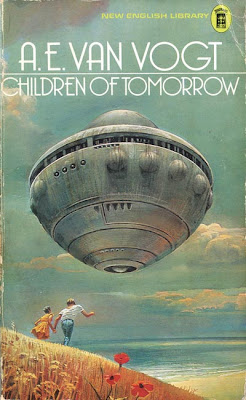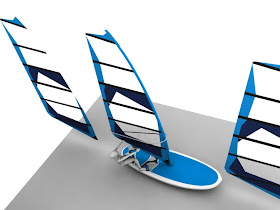The blender community is starting to get excited about the release of version 2.5, which is a ground up rewrite of the software. Until now the code runs well but is starting to creak under constant revision over the years.
Starting march 3 there will be winter camp in which b lender developers will get down to some serious code development which should make a big dent in the re-write project. This is going to be a very interesting project to watch as blender has a dedicated community who are really starting to set the pace as far as open source software development goes.
Users of macbooks who are suffering from slowdowns and unreliability due to graphics integration on their machines should be keenly following progress of the rewrite.
The new API should make for easier development of plugins for developers which could be a massive boost for the software. In the past easy plugin devlopment has paved the way for for the fast development of features into a major software suite, Adobe's handling of plugins over the years is a good case in point.
Friday, February 27, 2009
Saturday, February 21, 2009
Frame up you renders for Dramatic Results

Book design and illustration has a lot to teach us about framing renders for maximum effect. Using super wide lenses allows you to distort foreground and background scales to create interesting results. Next time you do a render don't settle for 35mm try going for 10mm or even up to 100mm to compress objects.
Thursday, February 19, 2009
Bauhaus - the origin of modern design

Post World War One in Germany was a culturally experimental time and out of this era came one of the most influential and important design movements of the 20th Century.
There is plenty of good info available on the web about the nitty gritty details about Bauhaus, but to put things really simply bauhaus was:
A Design and Aesthetic movement that embraced modern manufacture process to create high quality design pieces that were available to a wide group of people. Bauhaus had a very specific simple geometric aesthetic that did away with excess decoration, and got down to incorporating form and function into their pieces.
The Bauhaus set were design hardliners that changed aesthetics of the time from decorative artisan produced pieces to functional aesthetically pleasing pieces of design. Their sphere of influence included ceramics, graphic design, architecture, interior design, furniture design and fashion.
The most important European school of design and architecture in the 20th century was founded in Weimar by Walter Gropius in 1919. He gave his vision of the regeneration of humankind the programmatic title of the " Bauhaus”. Like the medieval cathedral stonemasons’ lodges, the school was intended to unite all the artisanal crafts under one roof: cabinetmaking, sculpture, workshops for metalworking, ceramics, mural painting, weaving, commercial artwork, photography and the Bauhaus theatre. A compulsory preparatory course helped students to throw overboard what they had previously learned in order to free their senses for a new visual and haptic exploration of the world.
Weimar - Dessau - Berlin
Gropius’ vision underpinned the Bauhaus during its short life through various periods of development and locations: the emphasis on craft production at Weimar, designing for modern industrial society at Dessau from 1925 as well as the more academic orientation of the curriculum under Mies van der Rohe in Berlin from 1932.
The National Socialists closed down the Bauhaus in the spring of 1933, but were unable to prevent its teachings, pedagogic innovation and its free, experimental spirit from being disseminated all over the world. The lifestyle aesthetic developed at the Bauhaus had a profound influence on the modern living environment. Many of its ideas, prototypes and everyday utilitarian objects have enjoyed unprecedented success over the past 80 years. Furniture designed at the school has become an icon of classic modern interior design.
Standard types
The „New Style of Living“, often designed with those living at the minimum existence level in mind, today still represents the standard for statefunded housing. The furniture for these „people’s apartments“ was standardized on Bauhaus production principles. According to Gropius, „….a good thing can only have one definitive solution, a standard type“. At first, the standard type was a unique individual piece. With the gradual reorientation of the Bauhaus towards technical production processes at the cutting edge of industrial development („Art and technology – a new unity“) it lost its individuality and from the middle of the 1920s came to be regarded as an element in a programme of furniture that could be combined at will.
Designers and Architects
The creators of this furniture were students from the cabinet-making and interior design workshop which students of architecture such as Marcel Breuer, Hin Bredendieck, Erich Brendel, Erich Dieckmann or Ferdinand Kramer also had to attend. Many important innovations – unit furniture, minimal interior design, tubular steel furniture – were developed by the directors of the Bauhaus, Walter Gropius, Hannes Meyer and Ludwig Mies van der Rohe, themselves. The new spirit of architecture evoked an open, uncluttered sense of space. The Bauhaus was the first school of design to take into account this visual and spatial reorientation.
With their functional designs for furniture that was easy to construct and dismantle and made from materials such as tubular steel, laminated bentwood and fabric woven from a specially developed extra-strong yarn known as "Eisengarn”, the designers and architects of the Bauhaus invented a universal language of design whose enduring success was based on its clarity and modernity of form.
Agood starting point to find out more is: http://en.wikipedia.org/wiki/Bauhaus
Pantone Selects Color of the Year for 2009: PANTONE 14-0848 Mimosa

Mimosa Embodies Hopefulness and Reassurance in a Climate of Change
CARLSTADT, N.J., Dec. 3, 2008 - Pantone, an X-Rite company (NASDAQ: XRIT), and the global authority on color and provider of professional color standards for the design industries, today announced PANTONE® 14-0848 Mimosa, a warm, engaging yellow, as the color of the year for 2009. In a time of economic uncertainty and political change, optimism is paramount and no other color expresses hope and reassurance more than yellow.
"The color yellow exemplifies the warmth and nurturing quality of the sun, properties we as humans are naturally drawn to for reassurance," explains Leatrice Eiseman, executive director of the Pantone Color Institute®. "Mimosa also speaks to enlightenment, as it is a hue that sparks imagination and innovation."
Best illustrated by the abundant flowers of the Mimosa tree and the sparkle of the brilliantly hued cocktail, the 2009 color of the year represents the hopeful and radiant characteristics associated with the color yellow. Mimosa is a versatile shade that coordinates with any other color, has appeal for men and women, and translates to both fashion and interiors. Look for women's accessories, home furnishings, active sportswear and men's ties and shirts in this vibrant hue.
Mimosa is also one of the 3,000 colors available in Pantone’s line of superior-quality, eco-friendly paint. PANTONE Paints combine the accuracy of PANTONE Colors with the beauty of high-performance Dutch paints. Perfect for the kitchen or family room, painting a wall in Mimosa will add warmth and cheerfulness to any room, especially during the winter months. Mimosa also creates the illusion of being connected to the outside, making small rooms feel open and inviting.
Wednesday, February 18, 2009
Blender Links

All these sites are on the free list:
Blender specific
www.blenderartists.org
www.blendernation.com
www.blender.org
http://en.wikibooks.org/wiki/Blender_3D:_Noob_to_Pro/Modeling_a_Simple_Person
Renderers
www.luxrender.net
www.kerkythea.net
Materials
http://matrep.parastudios.de/
www.grungetextures.com
General CG Sites
www.cgsociety.org
http://photoshoptutorials.ws/
www.tutorialized.com
www.gfxartist.com
Design
http://www.yankodesign.com/

